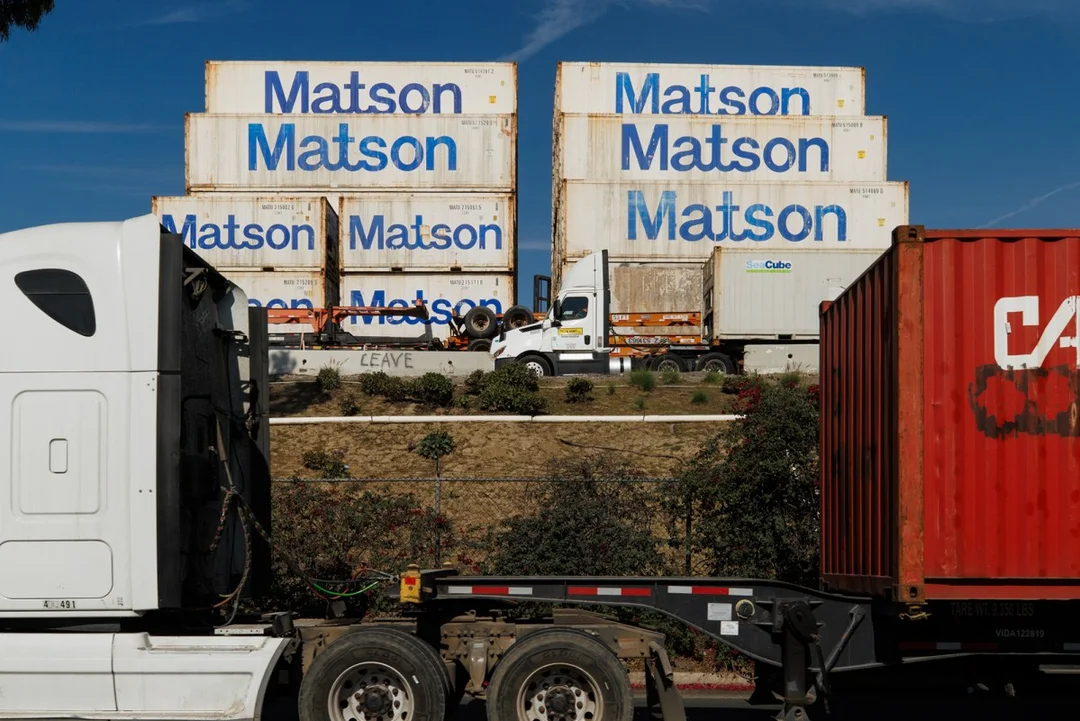
Is California’s Economic Crisis All Trump’s Fault? Unpacking the Blame Game
In the heart of America's most populous state, California, Governor Gavin Newsom is waging a high-stakes battle against federal policies, blaming President Donald Trump's tariffs for the Golden State's mounting economic woes. But as residents grapple with job losses and rising costs, the real question emerges: Are these problems solely external, or do they stem from deeper, homegrown issues? This debate not only highlights California's struggles but also raises broader questions about state leadership and economic resilience in a post-pandemic world.
Recent data paints a grim picture. California has lost 54,800 jobs in the first three months of this year, with major industries like refining and technology taking hits. Valero's decision to close a key refinery threatens gasoline shortages and price spikes, while insurance and electricity rates continue to soar. A staggering 54% of Californians now believe the state is on the wrong track, up 14 points since Newsom's inauguration in 2019. Newsom, ever the adept communicator, attributes much of this to Trump's tariffs, calling them 'unlawful' and chaotic in a recent statement: 'President Trump's unlawful tariffs are wreaking havoc on California families, businesses, and our economy, driving up prices and threatening jobs.'

However, analysts argue that California's economic sluggishness predates Trump's policies. As Gabe Petek, the Legislature's budget analyst, noted in a January report, the state's broader economy has been 'lackluster,' with elevated unemployment rates—tied for second-highest nationally—and job growth concentrated only in government and healthcare sectors. Private industries, from technology in the Bay Area to agriculture in the San Joaquin Valley, are shedding jobs due to factors like water shortages, high energy costs, and labor challenges. For instance, the Public Policy Institute of California estimates that up to 500,000 acres may need to be fallowed due to irrigation restrictions, exacerbating the decline in the state's famed winemaking and farming sectors.
Comparisons with other states underscore these self-inflicted wounds. Southern California's ports and film industry, once economic powerhouses, are losing competitiveness to regions with lower costs and better incentives. Newsom's response includes a lawsuit challenging the tariffs' legality and plans to boost housing subsidies, but critics like conservative commentator Steve Hilton question whether these measures are too little, too late. Hilton, announcing his gubernatorial run, lambasts 'years of Democrat failure,' echoing sentiments that Newsom's policies—such as high taxes and environmental regulations—have worsened the situation. As one opinion piece puts it, Newsom is a 'master of misdirection,' diverting attention from longstanding issues like industrial electricity rates, twice the national average, and anti-warehousing laws.

In summary, while Trump's tariffs may amplify California's challenges, the state's economic woes are deeply rooted in its own policies and priorities. This situation underscores the need for accountable governance and innovative solutions to restore opportunity. What role should federal versus state actions play in fixing this? We invite you to share your thoughts in the comments and help shape the conversation on California's future.